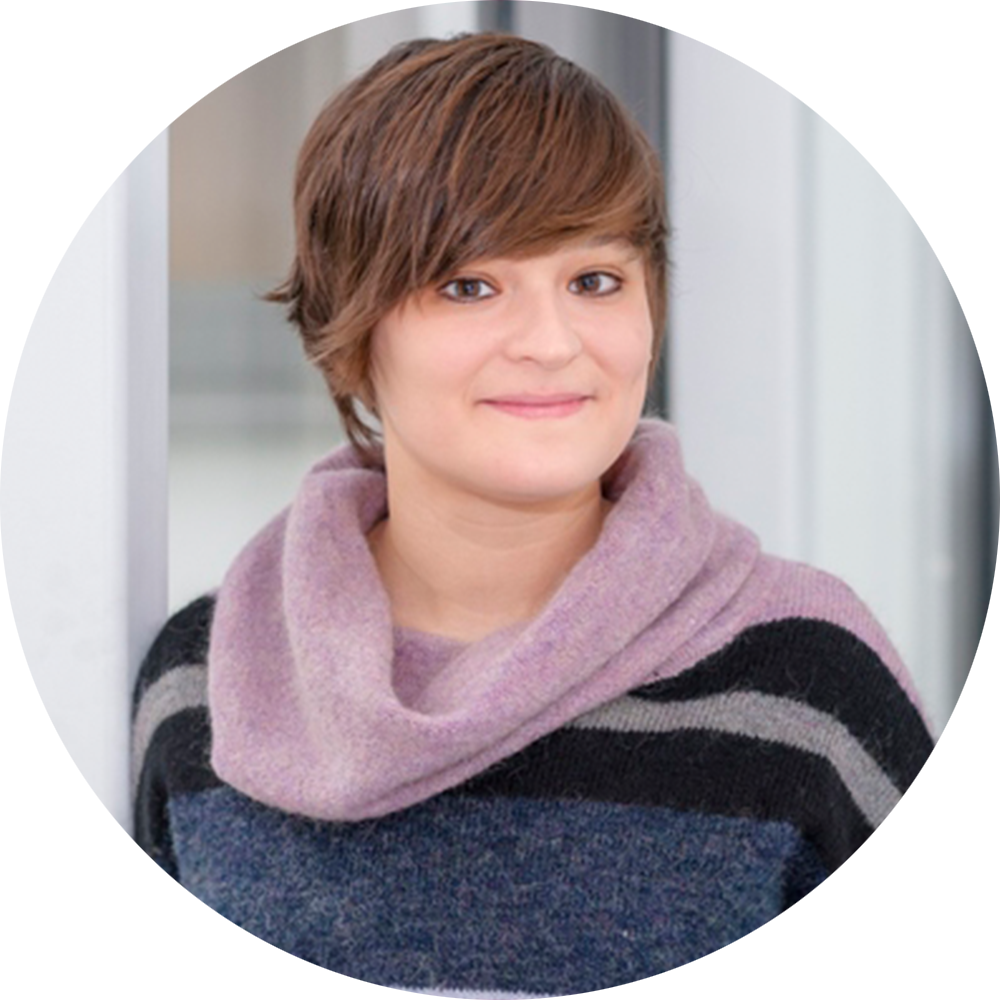Your Account
You are not logged in
Invited Speakers
 Susanne Bücker
Susanne BückerGerman Sports University, Cologne, DE
Starting in October 2022, Susanne Buecker is an Assistant Professor of Quantitative Social Science and Differential Psychology in Health and Sports at the Institute of Psychology within the German Sports University Cologne. Buecker received her Bachelor’s and Master’s degree in psychology at the University of Trier. She was trained in psychological methods and differential psychology during her PhD and postdoc at Ruhr University Bochum. Dr. Buecker’s research focuses on socio-emotional development across the lifediv and interindividual differences therein. She has a strong interest in synthesizing research using different meta-analytic techniques and embraces the values of transparency and openness in science. Moreover, she works with policymakers at the state and federal level in Germany as well as with the European Commission to support the understanding, measurement and intervention of loneliness in different age groups.
Title: Research Syntheses in the Age of Open Science: Perspectives for Improving Collaboration and Communication of Scientific Results to the Public
Abstract: How do scientists—especially those who conduct research syntheses—and the public benefit from Open Science? Where does psychology currently stand in terms of implementing and valuing Open Science practices? This talk will discuss the opportunities of Open Science (esp. Open Data, Open Material, Open Access) in the context of research syntheses by providing hands-on examples. Moreover, this talk presents how Open Science not only benefits the gathering of scientific knowledge and the scientific community as a whole, but also serves the broader society. Furthermore, special emphasis will be given to how Open Science can help Early Career Researchers to shape their scientific careers and to stimulate fruitful collaborations. I will end with a hopeful view of where the future of research synthesis in psychology may be headed.
 Sandra Matz
Sandra MatzColumbia Business School, New York, US
Sandra Matz is Associate Professor of Business at Columbia Business School in New York. As a computational social scientist, she studies human behavior and preferences using a combination of Big Data analytics and traditional experimental methods.
Her research aims to understand how psychological characteristics influence real-life outcomes in a number of business-related domains (e.g. financial well-being, consumer satisfaction or team performance), with the goal of helping businesses and individuals to make better decisions.
She was named as one of the Poets & Quants 40 under 40 Business School Professors in 2021. Her research was featured in numerous popular press articles, talks, and podcasts.
Title & Abstract: t.b.a.
 Clemens Stachl
Clemens StachlUniversity of St. Gallen, CH
Clemens Stachl is Associate Professor of Behavioral Science at the University of St. Gallen, Switzerland and Director of the Institute of Behavioral Science and Technology (IBT). He holds a PhD in Psychology and has worked as a postdoctoral scholar at Stanford University, USA, and Ludwig Maximilian University of Munich, Germany.
His work lies at the intersection of the behavioral- and computational sciences. He uses computational technologies to objectively quantify and study everyday human behavior, situational characteristics, and psychological processes. In particular he investigates (1) how technology can be used to better understand human behavior, experiences, and preferences, (2) how AI/machine learning can be used to statistically recognize individual differences (e.g., personality traits) from digital footprints, and how (3) stable user traits and momentary states can be considered in the design of intelligent systems and services to support people in their everyday lives. Additionally, he studies and thematizes the consequences and implications that can arise from the widespread and unreflected use of digital behavioral data in algorithmic decision making, for individuals and our societies as a whole.
Title: The Bright and Dark Future of Psychological Assessment
Abstract: Measures of latent psychological constructs have changed over the course of millennia. While psychological assessments have incrementally changed in the last 100-years, Psychology is currently facing an epochal transition into computational psychology that will require major shifts in education and knowledge creation. In this keynote I will discuss how big data and machine learning continues to change psychometrics and psychology more broadly. I will discuss how the development of more objective and data-driven assessment tools will help to understand human behavior and how we are now entering a new area in psychological science – the extension of the discipline to the systematic investigation of non-human intelligences. This new era more than ever requires a radical open science approach to allow research to be replicable and robust. I will conclude with an outlook perspective on challenges and most importantly, opportunities.
 Rens van de Schoot
Rens van de SchootUtrecht University, NL
Prof. Dr. Rens van de Schoot works as a full professor for 'Statistics for Small Data Sets' at Utrecht University in the Netherlands and as an extra-ordinary professor at North-West University in South Africa. He is also the program director of the research master 'Methodology and Statistics for the Behavioural, Biomedical, and Social Sciences'. He is known for his many tutorials, checklists, and online (free) course materials in the areas of SEM and Bayesian statistics. Currently, his main research project is the community-driven and fully open-source project ASReview: AI-aided systematic reviewing using Active Learning.
Title: Saving time and sanity: Using active learning for systematic reviews and meta-analyses
Abstract: ASReview uses state-of-the-art active learning techniques to solve one of the most exciting challenges in screening large amounts of text: there’s not enough time to read everything! Learn more about the free and open-source software for systematic reviewing: ASReview. During the presentation, Rens will explain how the step of manual screening abstracts for systematic reviews or meta-analyses can be accelerated by interacting with machine learning (this is called active learning), thereby saving up to 95% (!) of screening time. The community-driven project has grown into a vivid community of researchers, users, and developers worldwide, contributing to its open-source mission, and Rens will explain how you can join the movement towards fast, open, and transparent systematic reviews.


Daniel Quintana & James Heathers (Everything Hertz)
Dan Quintana (University of Oslo, NO), James Heathers (Cipher Skin, Denver, US)
Since 2016, Dan Quintana and James Heathers have been hosts of Everything Hertz, a podcast dealing with "methodology, scientific life, and bad language". The episodes cover a broad range of topics such as open science, research methods, or academic publishing. They were joined by numerous interesting guests like Daniel Lakens, Anne Scheel, Chris Chambers, or Simine Vazire. We are happy to have a live show at the symposium.
Daniel S. Quintana is an Associate Professor at the Department of Psychology, University of Oslo. He leads a lab investigating biological systems that link psychological and social factors to health, with a focus on neuroendocrine systems (e.g., oxytocin) and the autonomic nervous system. His lab uses various research approaches, including intranasal oxytocin trials, large-scale genetics studies, neuroimaging, and the collection of autonomic nervous system data (e.g., heart rate variability).
James Heathers is the chief scientific officer at Cipher Skin. Since first realizing that physiological measurements from people had meaning, he has tried to know everything about the interface between physiological measurement and people, for wearable devices in particular - physiology, statistics, hardware, software, data acquisition, signal analysis, storage/database, UI/UX, user testing, QA, stakeholder management, grant acquisition, etc.
Title & Abstract: t.b.a.
 Neal Haddaway
Neal HaddawayFreelance Researcher, SE
Neal Haddaway has a PhD in conservation biology. Since 2012 he has been working with evidence synthesis and developed systematic review methods, with an emphasis on using technology to support more accessible, comprehensive, transparent and rigorous syntheses. His main goal is the provision of reliable evidence for policy and practice to support better decision making and increasing transparency in environmental management.
In 2017, he started the Evidence Synthesis Hackathon, a series of events to develop needs-based, Open Source tools for evidence synthesis. He is the co-founder of the Evidence Synthesis and Meta-Analysis in R symposium (ESMARConf), which has run annually since 2021. This online, free symposium highlights tools for evidence synthesis in R and supports a large, vibrant community of practice across the globe interested in learning about, developing and using R for evidence synthesis.
Title: The importance of Open Communities of Practice in evidence synthesis - live per stream
Abstract: Open Science is increasingly appreciated as a vital backbone to reproducible and transparent science. In evidence synthesis, it has been argued that Open Science principles (co-called Open Synthesis) should be readily acceptable to review authors, since we struggle often with a lack of openness in primary research studies and their data. The final frontier, perhaps, in Open Synthesis are Open Communities of Practice - a synergistic embracing of Open Science principles that provides a welcoming, accessible and equitable space for learning, training, sharing, designing, using and testing of all things related to evidence synthesis. Without dedicated attention to these Communities of Practice, methods, tools and education in evidence synthesis risk being guarded behind barriers that preclude equitable and just access. In this talk I will explain why we should carefully design our Evidence Synthesis Communities of Practice to ensure that everyone can find out about rigorous systematic reviews, learn how to carry out and interpret them, access free tools to support their conduct, and collaborate to design long-lasting tools to support others. I will give examples of how this is happening and highlight continued barriers that must be removed in order to decolonise the future of evidence synthesis and develop just and equitable Evidence Synthesis Communities of Practice.
Leibniz Institute for Psychology (ZPID), Trier, DE
Anita Chasiotis did her doctorate at the University of Trier and ZPID, where she has been leading the "PLan Psy" project since 2021. The aim of the project is to make psychological meta-analyses accessible to the interested public through plain language summaries (PLS). To this end, the "PLan Psy" project developed and evaluated guidelines that include evidence-based standards for writing PLS. In the future, PLS will be permanently included in the service portfolio of ZPID and made freely available online.
Title: Psychology, open to everyone? The PLan Psy project
Abstract: Science should be open - not only to scientists! The goal of the "PLan Psy" project which was carried out at Leibniz Institute for Psychology (ZPID) from 2021 to 2022 was to initialize an accessible and high-quality information service on psychological research for the German-speaking public. For this purpose, an evidence-based guideline for writing plain language summaries (PLS) of psychological meta-analyses was developed. The guideline is based on a systematic review, four experimental studies and one qualitative study, and was evaluated in two expert workshops. Starting in 2023, a freely accessible information service for the public will be established at ZPID on the basis of the project outputs, the core product of which will be PLS of psychological meta-analyses. However, open science communication should not be a one-way street: The PLS are complemented by attractive explanatory videos and community-based opportunities for participation (“crowd science”). This means that the service is not limited to providing information with the aim of public understanding (of science). As it is supplemented by a wide range of opportunities for participation and interaction, it enables genuine public engagement (in science).The service fully commits to the open science idea: It not only acts as a "door opener" for non-experts interested in psychological evidence, but also opens psychology as a science to the questions, concerns and ideas of the general public.
 Smitha Kolan
Smitha KolanCo-Founder of Metacent.io, MSc in Big Data from SFU, Canada, Ex-Software dev at SAP, Vancouver, CA
Smitha Kolan is a Machine Learning Engineer, YouTuber, and an Educator. She has garnered a community of over 50K+ machine learning and data science enthusiasts. She is a highly sought-after expert in Machine Learning & AI and she is on a mission to help people understand these technologies.
Title: "An Introduction To Machine Learning And Its Applications To Behavioral Sciences" - live per stream
Abstract: t.b.a.
Contact
For assistance and questions, please contact:
Conference email
COMS 1

